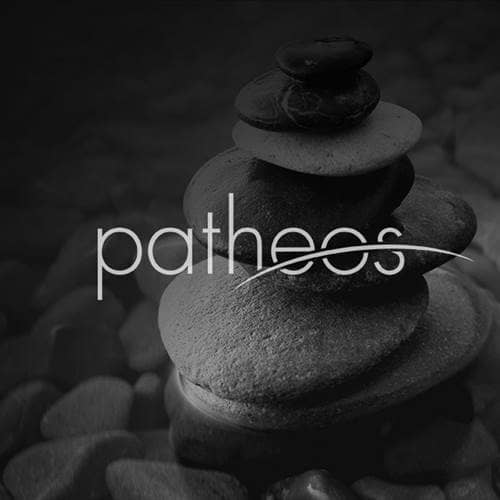- Trending:
- Pope Leo Xiv
- |
- Israel
- |
- Trump
- |
- Social Justice
- |
- Peace
- |
- Love

RELIGION LIBRARY
Eastern Orthodoxy
Influences
The Latin and Greek cultures of the Roman Empire had a decisive influence on the early formation of Christianity, as did the Jewish culture and religion in which Christianity is rooted. Eastern Orthodox Christianity is firmly rooted in the ancient Christian communities of the Roman Empire, which were founded by the energetic evangelism of the companions of Jesus, called apostles. Jesus taught matters of faith and practice to the apostles, who in turn handed them on to their disciples and the churches they founded. The faith and practices of the apostolic churches have been preserved and passed on from generation to generation, and Orthodox Christianity is determinedly faithful to these ancient traditions. The word "Orthodox" means "correct belief" and "correct practice," the two meanings inseparable. In Orthodox Christianity, tradition is holy.
Holy tradition is preserved in a variety of sources: the Bible, the Nicene Creed, the decisions of the seven ecumenical councils, the writings of the Church Fathers, the canons (laws) of the church, the books of liturgy, and the icons. Of these sources, the highest value is placed on the Bible, the Creed, and the councils. Orthodox Christians are strict about these, believing firmly that they should not be altered, and nothing should be added or taken away from them. Orthodoxy's steadfast loyalty to preserving holy tradition gives the religion a feeling of antiquity, as though it were suspended in time. But this apparent changelessness disguises the inner dynamic of holy tradition, which lives and breathes in the believer's engagement with it. Tradition guides and sustains Orthodox Christians through time and historical change, leading to new interpretations of ancient ideas. This is in part due to the speculative nature of Orthodox belief and practice, which itself is due in no small part to the influence of the Greek speculative tradition. Speculative philosophy tends to be open-ended and flexible. It is concerned with ultimate questions that resist clear answers, such as the true nature of God, the meaning of the Trinity, the nature of our experience of time, or the meaning of death.
The language and culture of Greece dominated the outlook and practices of the churches in the eastern part of the Roman Empire, where Greek became the predominant language after the disintegration of the Western Empire in the 5th century. Around that time, the eastern and western churches began developing their own unique personalities, in part because of the use of different languages. Eastern Orthodoxy, developing in Greek Constantinople, attracted scholars and intellectuals who were practiced in the Greek philosophical styles of speculative thought and mysticism. The special flavor of Eastern Orthodox theology and practice is shaped by mysticism, with a strong focus on the inner meaning of holy tradition.
The profoundly mystical nature of Orthodox theology is evident in many concepts central to Orthodox thought and practice, for example the doctrines of icons, the Trinity, and the Incarnation. A truly distinctive development in Orthodox thought is its insistence that God is not merely known or apprehended through the intellect. In a careful denial of the mind-body dualism that typifies many modern Christian theological traditions, Eastern Orthodoxy suggests that God can be experienced in practice and embodied. The body is as instrumental in faith and practice as is the mind. Christians can become "partakers of the Holy Spirit," (Hebrews 6:4), deified through its presence.
This is especially apparent in the writings of the 10th-century theologian and poet, St. Symeon the New Theologian. Symeon wrote extensively on the mystery of God, unreachable and unknowable, yet discovered in intimate and loving nearness. Symeon taught that it is possible for all Christians to have a direct experience of the Holy Spirit, and that the Holy Spirit leads us to a transformative encounter with Christ. Inspired by the account of the Transfiguration (Jesus' glory revealed) found in all three synoptic Gospels, Symeon writes that this encounter with Christ is experienced in a vision of a divine and uncreated light. The believer can experience the light of God's grace. In his poetry, Symeon writes movingly of many such visions of his own. Symeon's ideas were later defended by St. Gregory Palamas, a 14th-century hesychast who defended Symeon's ideas by developing a thesis that distinguished between God's essence and energies. The essence of God is transcendent, wrote Palamas, while God's energies are immanent, or everywhere and in everything. It is said that Palamas only said one prayer for thirty years, continually repeating, "Enlighten my darkness. Enlighten my darkness."
Due to Orthodox Christianity's avid embrace of Greek philosophical and speculative traditions, many works of Greek philosophy were preserved in the Byzantine Empire, even while they were lost to western Europe during the dark ages. Arabic-speaking Orthodox Christians translated volumes of Greek philosophy into Arabic for Muslim scholars and collectors, helping to build a philosophical tradition in Islam. The Muslims in turn brought the classical Greek philosophies and methods to western Europe.
Study Questions:
1. What is apostolic succession? Why is it important to the integrity of the tradition?
2. How is tradition preserved within the Eastern Orthodox Church?
3. Describe the relationship between language and identity formation within the Eastern Orthodox Church.
4. In what ways is Eastern Orthodoxy a mystical tradition?










